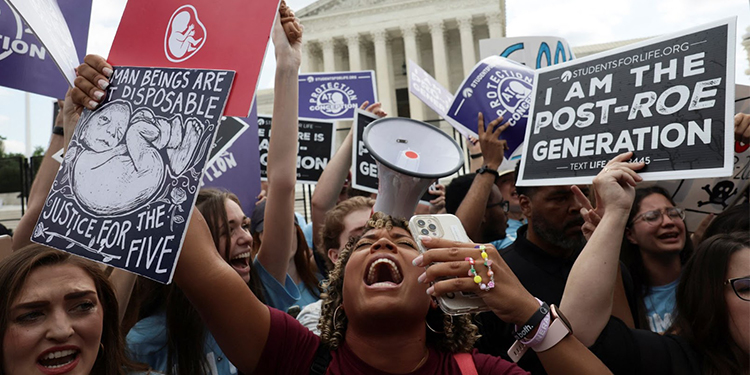Since the elimination of the constitutional right to abortion in 2022 in the United States, there has been a significant increase in the number of abortions, as well as the painful and expensive trips that women are forced to undertake to access this medical care. This situation has arisen after the Supreme Court annulled the historic case Roe v. Wade, which has protected access to abortion at the federal level since 1973.
The authorization of abortion has become a state issue, leading to a disparity in policies across the country. Some states, mostly dominated by Republicans, have severely restricted or even banned abortion, while others, mostly Democrats, have strengthened protections for the practice.
The Guttmacher Institute, a women’s rights research center, has reported that the number of abortions has increased in several states that share a border with those that have prohibited the termination of pregnancy. This suggests that a significant number of residents of states where abortion is prohibited travel to neighboring states to access abortion services.
The figures are shocking. New Mexico, which limited abortion access, saw a 220% increase in abortions compared to 2020. Illinois, which is near restrictive states, saw a 69% increase, and Colorado, surrounded by states with restrictive policies, saw an 89% increase.
This increase has led to an increase in demand for mail-order abortion pills from abroad and has prompted the adoption of “shield” laws in some states to protect health care professionals who ship these pills to states where abortion is prohibited.
Despite the increase in abortion access in some places, experts emphasize that these trips remain a significant logistical and financial burden for women seeking to terminate their pregnancies. The elimination of the right to abortion has had a profound impact on the lives of women in the United States, highlighting the continued importance of this issue in the country’s political and social spheres.










